AC/DC through the lens of their guitars and amps! 🎸 What gear is essential for this legendary band? To mark their return to Europe, we spoke with French guitar expert Julien Bitoun 🎶
A look at the amps and guitars of AC/DC! Following the launch of their “Power Up” tour in 2024, Australian rock powerhouse AC/DC are back to electrify audiences once more – kicking things off in the UK on 21 August 2025 at Murrayfield Stadium in Edinburgh. Time to stomp your feet and get your head banging again. What better moment to take a closer look at a formula that’s been firing on all cylinders for over fifty years?
Guitars and Gear: The AC/DC Institution
AC/DC was formed in Sydney in 1973 around the Young brothers – lead guitarist Angus, then just 18, and his older brother Malcolm, three years his senior. Malcolm was not only the rhythm guitarist but also the main riff writer and captain of the ship, with a clear vision of what the band should be. The line-up settled in 1975 with the arrival of Bon Scott on vocals and Phil Rudd on drums. The formula seems simple on the surface but is utterly irresistible: a blend of blues and rock between Free, the Rolling Stones and T. Rex, with a killer groove and a riff instinct that’s impossible to imitate. Half a century later, the band has lost its singer (replaced by Brian Johnson in 1980), its drummer, and above all, its leader (Malcolm was replaced by his nephew Stevie in 2014). But with 200 million albums sold and the status of the greatest hard rock band of all time, AC/DC hit the road again in 2024 and looks determined to keep thrilling audiences worldwide.

AC/DC’s Guitars, Amps and Gear ▷ Back to Basics.
When it comes to gear, the current setup is essentially the same as it was back in the day. In fact, the transition from Malcolm Young to Stevie Young happened seamlessly, with the newcomer sticking to more or less the same equipment. As a result, his playing style and tone are strikingly similar to his uncle’s.
The AC/DC sound is all about the complementarity between the two guitars. On one side, you have Malcolm’s dry and gritty tone; on the other, Angus’s slightly fatter sound. In both cases, the distortion is nowhere near as gain-heavy as one might expect, and the essence of the tone comes from both the right-hand attack and a hefty volume. Not easy to replicate, especially since it’s the kind of sound that doesn’t forgive mistakes.
AC/DC: SGs Galore

Let’s start with the schoolboy who’s been front and centre since day one. Angus Young is one of the guitarists who helped elevate the Gibson SG to iconic status, remaining loyal to the double-horned model throughout his career, even at a time when most guitar heroes were favouring the Les Paul. He obviously owns many different SGs but always comes back to a few favourites. The most iconic is a 1970 walnut SG Standard with a Vibrola tremolo, which was his main axe during the band’s early days, along with its Cherry Red twin from the same era. In the 1990s, he was often seen with a black SG Standard with a fixed bridge, this time a small-guard model reminiscent of the pre-1966 style.
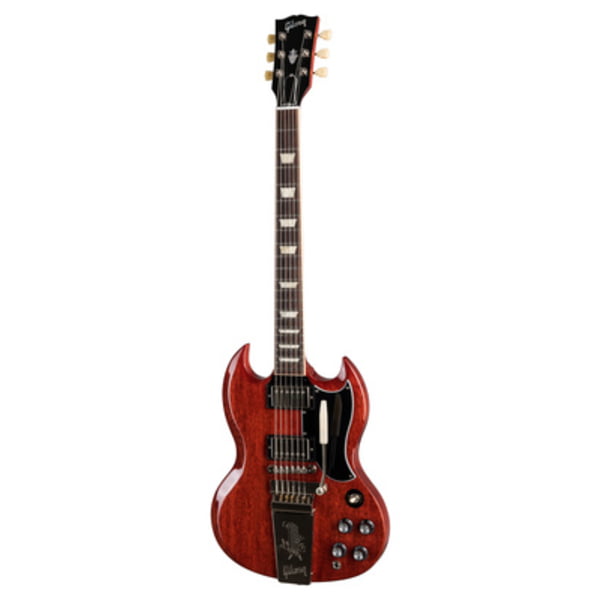
SG 61 Standard Maestro VC
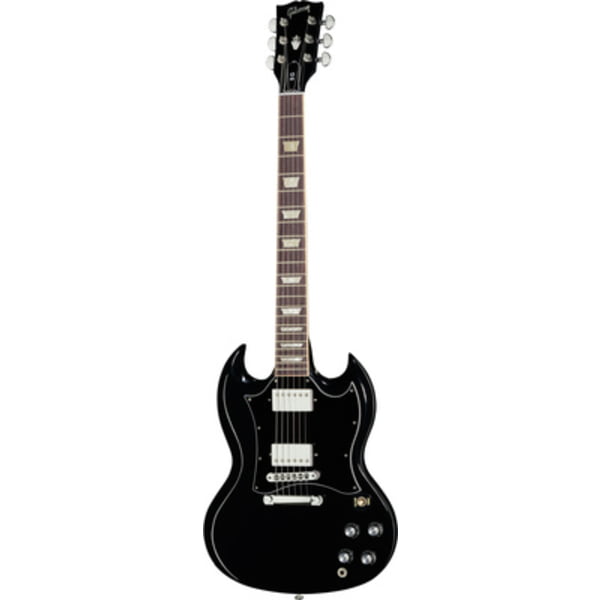
SG Standard EB
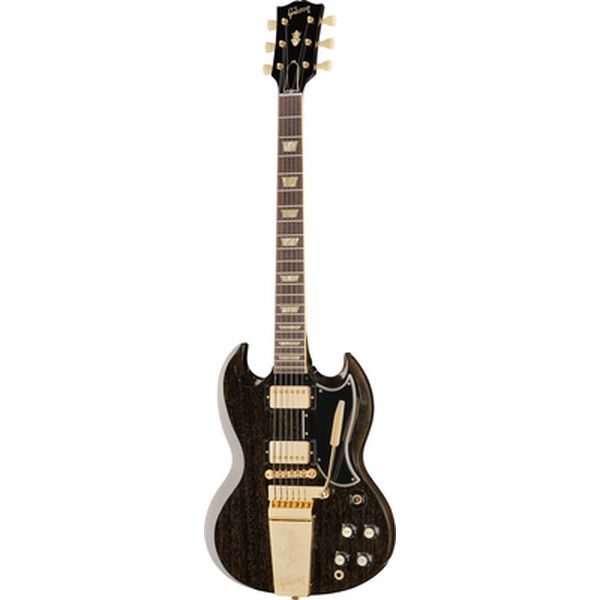
SG Standard 64 Maestro TV BG
Finally, during the Highway To Hell (1979) and Back In Black (1980) era, he often played a black SG with a large white pickguard, two humbuckers, gold hardware, and binding. This was likely a heavily modified SG Custom resulting in that stunning look.
When it comes to effects, Angus doesn’t bother with a pedalboard. Back in the 70s, he simply used a Schaffer Vega wireless transmitter, which also served to compress his signal thanks to the built-in preamp. These days, wireless systems are of much better quality, so he now gets the same effect using reissues of that original preamp.
As for amps, no surprises here: we’re in the glorious world of heavy British artillery. Angus loves Plexis — Marshall Super Leads in 100 or 50 watts — and is also a fan of the very rare JTM-50, a close cousin of the JTM-45.
Of course, if you want to get close to Angus’s tone, the easiest way is with a pedal — no need to start a war with your neighbours. The Crazy Tube Circuits Heatseeker is ideal as it offers both a “Marshall in a box” sound and an emulation of the Schaffer system. It doesn’t get much more spot-on than that.
AC/DC Guitars and Amps: Keeping it Simple

As for Malcolm, the setup is even simpler, with no wireless transmitter in the picture. Malcolm was very much a one-guitar man — and that guitar stayed with him from start to finish. His trusty 1963 Gretsch Duo Jet Firebird Jet was nicknamed “The Beast”, and it went through several iterations (including one with a third humbucker in the middle) before ending up in its most stripped-down form, sanded down with just a single bridge pickup. In tribute to the original, Gretsch even reproduced the holes left by the missing pickups on the Gretsch G6131MY signature model.
Malcolm rarely strayed from “The Beast”, except during the Back In Black era when he was seen with a Gretsch White Falcon — a guitar so big he seemed to vanish behind it.
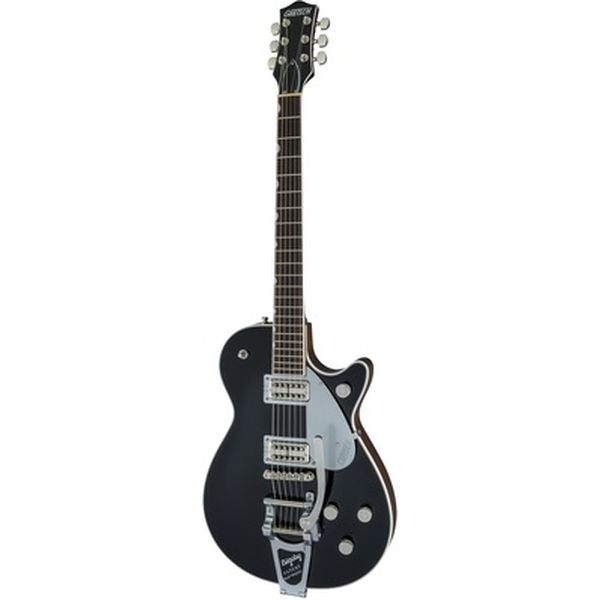
G6128T Jet FT Black
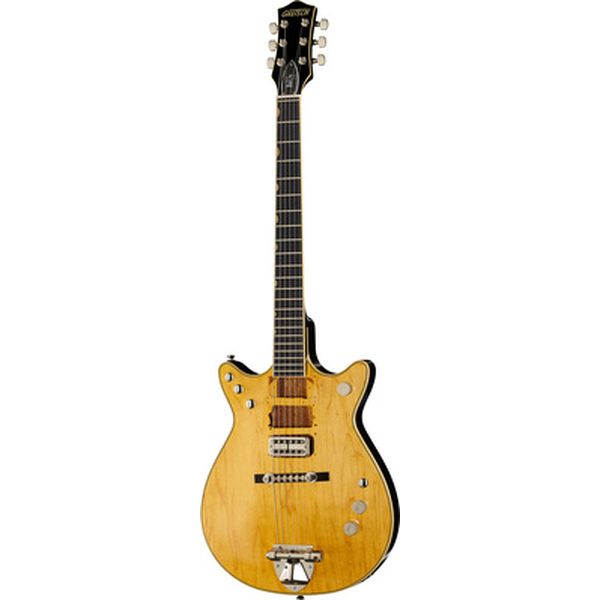
G6131-MY Malcolm Young
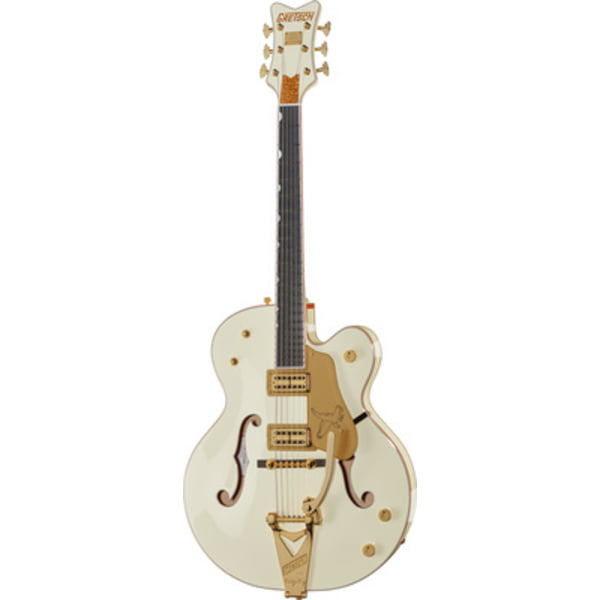
G6136T-59VS White Falcon
For maximum headroom, Malcolm chose a Marshall Super Bass amp, though you can get a fairly similar tone with any low-gain Marshall-style head cranked up loud.
Of course, Malcolm’s choice of string gauge was a crucial part of his tone — a monster 12–56 set (in standard tuning!) that wasn’t exactly bend-friendly.
As you can see, there’s no real secret behind the AC/DC sound: skilled hands, guitars straight into Marshalls, and plenty of volume! And, of course, a band with a unique groove that breathes life into the unstoppable riffs of the two brothers — which is, without a doubt, the hardest part to replicate.

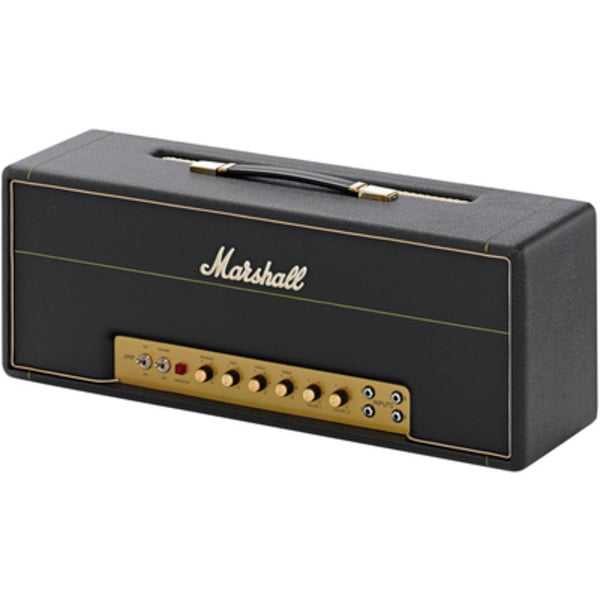
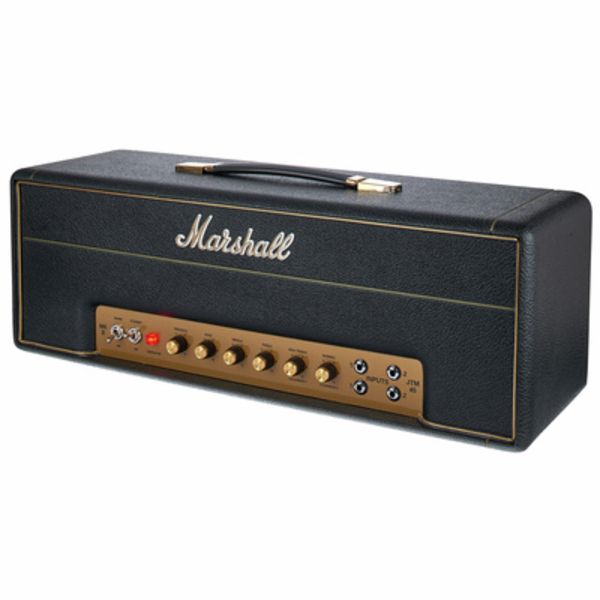
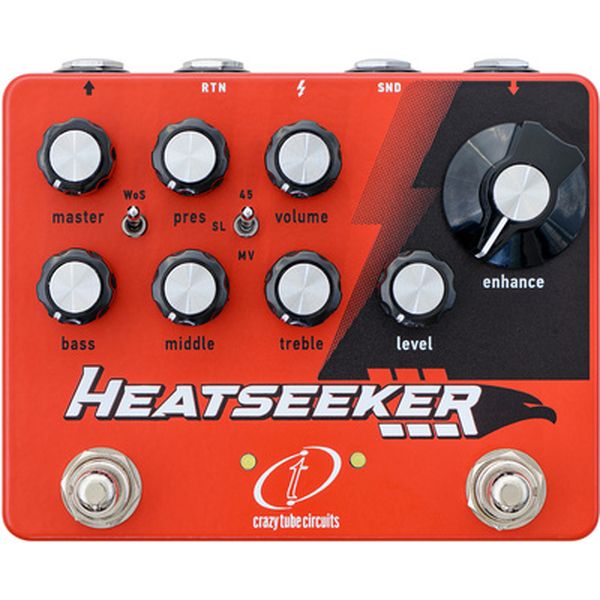






Comments 0
No comments yet.